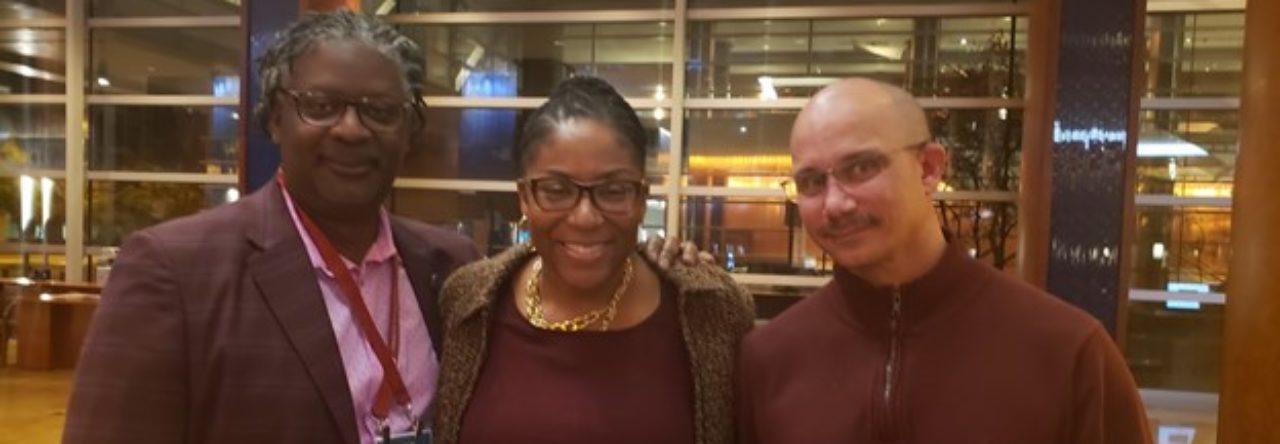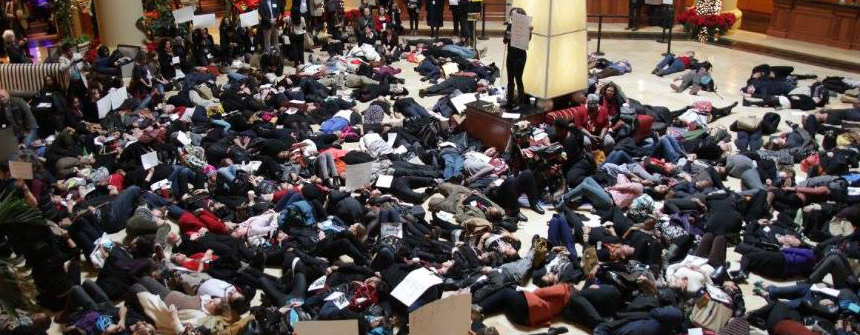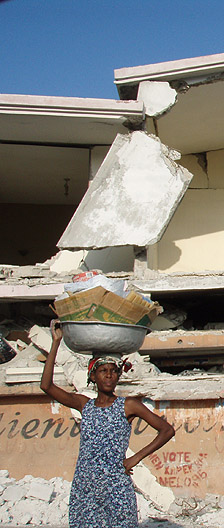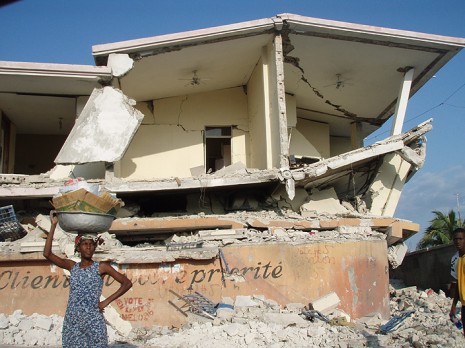ABA Statement Against Police Violence and Anti-Black Practices
The Association of Black Anthropologists condemns, in no uncertain terms, the ongoing terrorism waged against Black U.S. communities by the state, police, and White vigilantes. We condemn the executions of our boys and girls, women and men by the police in Ferguson, Staten Island, Saratoga Springs, Los Angeles, and throughout the country. We also recognize that these forms of state violence are perpetrated against Black people globally. We are enraged by the fact that no police officer has been indicted in the recent murders of Aiyanna Jones, Michael Brown and Eric Garner; and we are outraged that in the hundred days since the murder of Michael Brown, police have also murdered unarmed Ezell Ford, unarmed Tanisha Anderson, unarmed Roshad McIntosh, unarmed Akai Gurley, unarmed Dante Parker and unarmed Kajieme Powell. These are state-sponsored massacres of our people, massacres enabled by a long history of national and global anti-Blackness.
As it pertains to the ongoing atrocities of the criminal justice system in this country – alongside those who spoke before the United Nations in November, we charge genocide.[1]
As members of the academic discipline with the distinctive history of establishing the language and “science” of race to justify settler colonialism and slavery, we recognize full well that the root of today’s anti-Black state-sponsored violence in the U.S. is white supremacy. We know that our discipline played a significant role in developing the trope of a particular Black subject – the “urban” Black – that has been deployed by society at large to dehumanize Black people. At the same time, we also realize that our discipline has been tepid in fruitfully acknowledging and addressing its own white supremacist foundation. We therefore call on our colleagues in the American Anthropological Association to join us in not only condemning this history but also in affirming that Black Lives Matter – beyond the role of ethnographic subjects and cultural vessels. We call on our colleagues in anthropology to stand against the U.S. state’s terrorism against Black and Brown peoples. We call on our colleagues to join us in demanding redress and restitution, with expediency.
As anthropologist Zora Neale Hurston is known to have said, “If you are silent about your pain, they will kill you and say you enjoyed it.” We will not be silent. For members of the American Anthropological Association to be silent at this time given our discipline’s historic complicity in establishing the current order, and when we have the means to make a difference, is criminal.
To this end
- We call on the Executive Board of the American Anthropological Association to issue a formal statement that condemns the heinousness of these crimes and calls on our academic guild to more forcefully tackle the problems brought on by racism and racial profiling. We ask that the Executive Board make every effort to make this statement accessible to the general public through mainstream media outlets so the discipline’s stance and investment in these efforts can be widely known.
- We call on our colleagues to join the ABA in challenging the power positions from which we produce anthropology.
- We join with other anthropologists, and stand in solidarity with people from around the country, in calling on the U.S. Department of Justice to review the use of force by police and to make a commitment to working for the eradication of racism and racialized state violence.
[1] http://www.theatlantic.com/national/archive/2014/11/we-charge-genocide-movement-chicago-un/382843/



